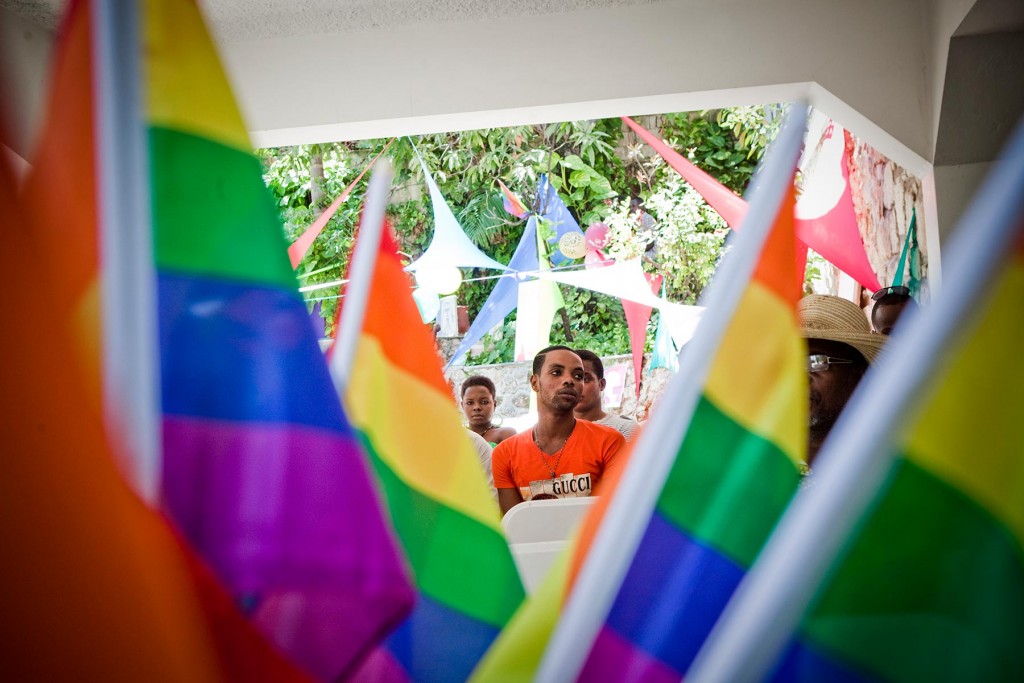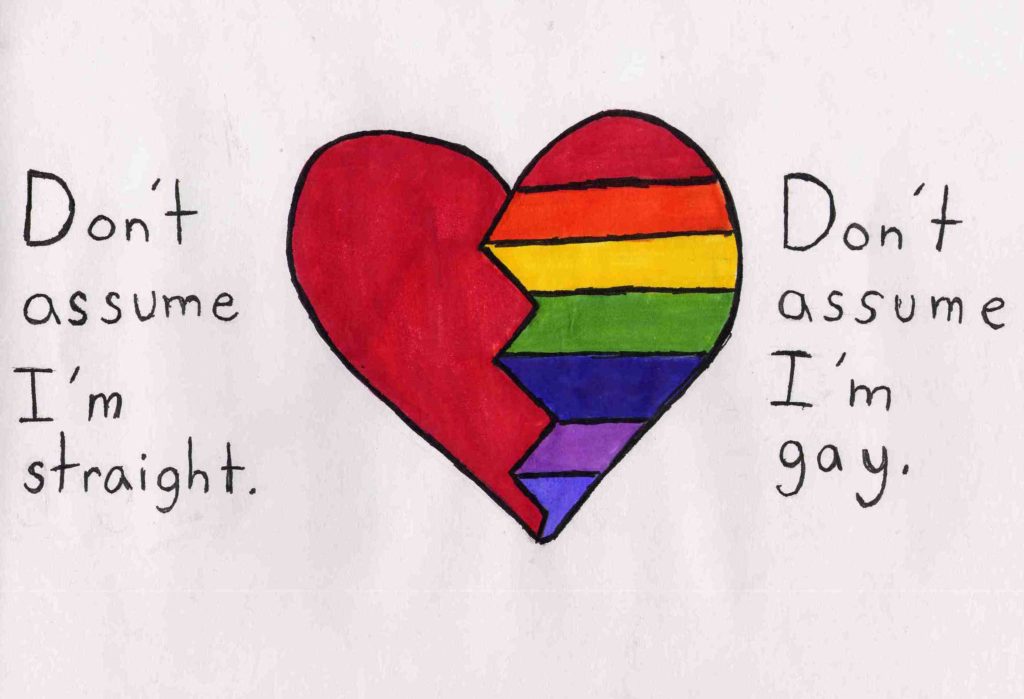“Should I get married to a woman?” asked my friend Kamal, who is gay and was seeking advice from me, but it instead led towards many other questions in my mind. “Why do we have to get married? Why is it necessary to marry according to Pakistani Society? Why marriage as an institution has so much of a value that it over throws the basic human choice and violates the right of a person to choose?”
Kamal is a 28 year old gay man living in Lahore, and belongs to a typical Pakistani family. Pakistan has a patriarchal society with hetero-normative values where men are the primary authority figures. The Asian Development Bank defines gender as one of the organizing principles of Pakistani society. These patriarchal values – embedded in local traditions, religion and culture- predetermine the social value of gender. Among one of those is marriage- a tradition established and adhered to by society up to the extent that it is quite compulsory for every man and woman, according to both social and religious norms, to participate in it. In a similar way, since last 2 years Kamal’s family was pressurizing him to get married because he was their only son and they wanted to have their grand children who can carry forward their family legacy.
But in this whole process parents forget about the needs of their children, never questioning the masculinity/femininity and sexuality of their children. The pressure from parents, supplemented by society, creates expectations of queer children getting married despite their lack of consent.
Parents often emotionally blackmail and also threaten to cut their children off from the family inheritance, which causes more harm psychologically and leads to depression in their children.
Perhaps it is not the fault of Kamal’s parents alone; this is what we have been taught and this is what we learnt since our childhood. As we grow up, we always see the gender binary roles in the form of our parents, or our grand-parents; on TV in Pakistani dramas and even in Hollywood movies. But wait!!! How can we forget cartoons? Snow White with Prince Florian, Cinderella with Prince Charming, even the otherwise sexually androgynous Micky Mouse has been paired with the hyper feminized Minnie with her pink bows and high pitched voice. Ohhh lord!!! Even when I was a kid, when I asked my father for a parrot, the next day he got a pair and upon questioning why there were 2, the answer was, male and female parrot makes the family and they expect them to breed and have kids to make that family “complete”. Hence the traditional definition of a family along with these hetero-normative gender roles is observed from the childhood of every individual. This is further reinforced by religion, mandating that it is the duty of every good Muslim to marry, have children and populate the Earth with little Muslims to carry on God’s good work. All this programs us to think within the box of gender roles and hetero-normative values.
I’m not one to argue against the right for the hetero family structures to exist, but this totally erases the concept of any thing which talks or performs beyond the defined gender binary relationships. This is not only disrespectful but also violates the rights of those people who do not believe in gender binary roles or do not follow the principles of marriage. Why is heterosexual marriage the default in society? Why do these values erase the experiences and feelings of their queer counterparts?

“I was blackmailed and forced by my family and specifically by my mother to get married, Now my question is …. how can I satisfy my wife when I am not satisfied with her in bed?” asked a gay man from the city of Rawalpindi, as tears filled his eyes. “Every night I feel pressured…what would she be thinking about me? What are my parents thinking about me? What is society thinking about me? An impotent!!?” He went on, “Due to my sexuality, even after 3 years of my marriage, I am unable to have sex with her and it makes me feel guilty because I feel like I failed at my most basic responsibility.”
Why is heterosexual marriage the default in society? Why do these values erase the experiences and feelings of their queer counterparts?
This is a very common scenario that most gay men go through when they are forced to marry because of the societal pressure. But after that they suffer psychological trauma every night when they go to bed with their wives. But who cares ??? This is just a sexual performative act, any one can do it. Right?
Then what do we call a married gay man who has sexual relationships with men even after his marriage? What should we call it? Cheating? Being aware of the hetero-normative structure of society, how it looks down upon a gay person or any hint of queerness; a society that forced him to get married to a woman and then expects him not to go out with any guy to satisfy his needs, to satisfy his desires, to be himself. What is he and where should he be?
Or should we call them bisexual men? Yes they are happily married on the one hand and have extra marital affairs with other men on the other. Is this bisexuality? Can this bisexuality be widely accepted in Pakistan?
What do we call a married gay man who has sexual relationships with men even after his marriage? What should we call it?
“8 years ago, when my wife found out that I am mentally and physically interested in men as well, she left me along with my son and demanded a divorce from me. We both were happily married and we had a small family, I tried to convince her but she was not ready to compromise,” one of my bisexual friends told me. He has been divorced for almost 8 years. “My own family knows my identity because my wife revealed it and still I am not allowed to meet my own son as my in laws curse me. They don’t allow their grand child to meet his filthy father, only I know how much I love my son”.
This is just one of the many incidents where wives have divorced after finding out about their husbands and calling it a cheating.

Bisexuality has been noted among men in history, as far back as Alexander the Great, who married thrice and also had an intimate and emotional relationship with his cavalry commander. Aristotle described it as “One soul abiding in two bodies”
However, the portrayal of bisexual men in movies has been largely negative. They are either killed, commit suicide or are killers. At other times, they are either HIV carriers bridging the virus to the straight population or are shown as sexually promiscuous. Very rarely and only recently have films begun to explore polyamory and bisexuality, and women in relationship with bisexual men, in a more positive and varied light.
But it is not just the society which misunderstands bisexual men. A lot of biphobia exists within the gay community. Upon asking a gay man on what he though about bisexuals, he claimed that, “they are hypocrites, unfaithful, two faced, uptight, cold and a pain in the neck”. I wasn’t expecting so many adjectives within one sentence and immediately asked him: “Why are you saying all this about them?” “Because this is what they deserve,” he retorted. I was left speechless!!
Biphobia within gay spaces exists at many levels. Once I was talking to one of my bisexual friends and we started talking about biphobia, he said “ If there is one thing that truly pushes my button, it’s hypocrisy. Of all the places and people to make negative remarks about my sexuality, it was gay men.”
It is not just the society which misunderstands bisexual men. A lot of biphobia exists within the gay community.
“A homosexual relation is not only about sex. The bisexuals I met didn’t know clearly what they wanted with a man; I do,” said one biphobic gay man to me and I ended up giving him a scathing look that said: “How judgmental are you!”
“We don’t exist in the gay world, we are on the cusp of the gay world because we are married men. We clearly don’t exist in the straight world. So we seem invisible,” said another bisexual married man to me.
Biphobia in gay culture has many repercussions. How does a gay person feel when he has not been accepted in the general society and faces multi layered discrimination and bullying about his sexuality? Bisexual people feel the same way when their own LGBT community has not accepted them. At one place they might already be living a dual life and on the other hand this lack of acceptance alienates them further. Bisexual men are often struggling to cope with no support – many are suffering from quite severe depression.
It is not only bisexual men who have been victimized due to the heteronormative societal norms and end up being in a marriage where they risk being outed to their spouses ad eventually face divorce. Queer women in Pakistan and those women who have been married to gay men suffer just as much as queer men, if not more at the hands of these societal pressures. They also have to go through with several forms of violations, which includes non-consensual marriages, marital rape, un-wanted pregnancies etc. They also get victimized due to the toxicity of a male dominant society where the father decides who, when and where to marry and husband decides about when to have sex and how many children he wants. Both men and women are victimized in this patriarchal society, effectively ruining the lives of everyone involved. I can’t claim to be an expert on the matter of female sexuality, a discussion I will leave for my more articulate sisters to talk about. This article is to shed light on the situation of queer men and their struggle with the institution of marriage in Pakistan.
Queer women in Pakistan and those women who have been married to gay men suffer just as much
Gay men and Bisexual men are often held accountable by progressive queer circles for marrying women and then later cheating on them with other men behind their back. While this is a pervasive issue that needs to be addressed, it is unfair to hold queer men solely responsible for this outcome. This behavior is a result of a patriarchal and homophobic society that has no room for queerness and limits the sexual freedom of anyone who doesn’t fit the typical hetero-patriarchal macho man.
There needs to be a nuanced understanding of the pressures on queer men to conform to familial expectations and societal norms before we jump to judge them for adultery and cheating. We need to accept ourselves as well as give spaces to others in order to become a better person.
- Queer and Married in Patriarchal Pakistan - April 22, 2020
- Opinion: Femme-shaming Within the Gay Community - June 12, 2018

